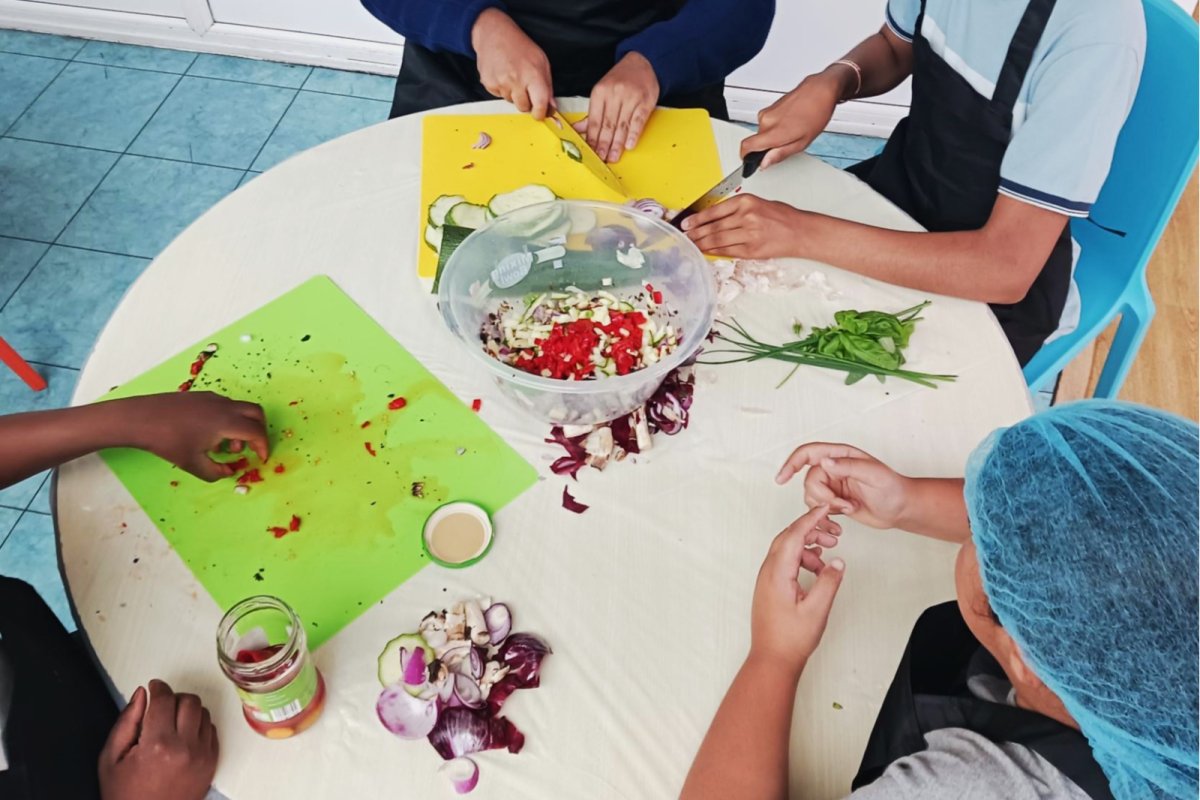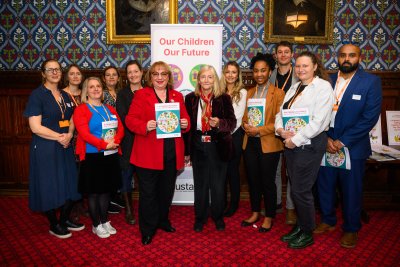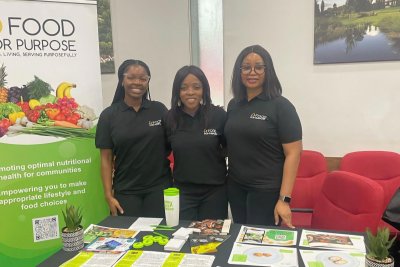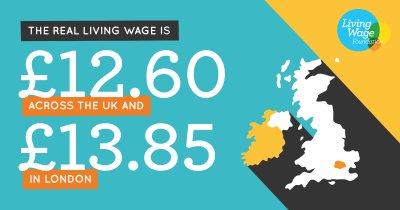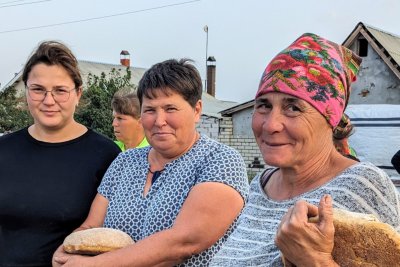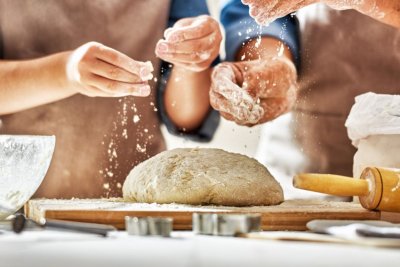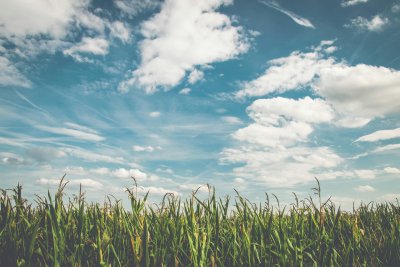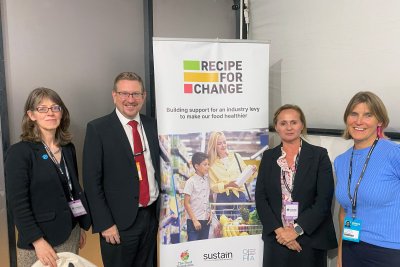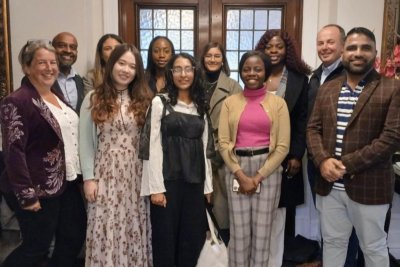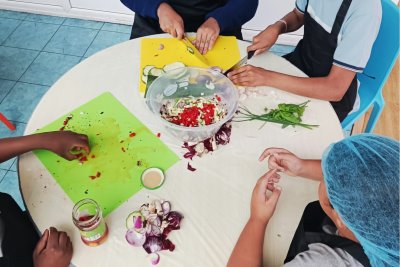 Flipside LGBTQ+ Youth Programme Pizza Session. Credit: London Borough of Barking & Dagenham
Flipside LGBTQ+ Youth Programme Pizza Session. Credit: London Borough of Barking & Dagenham
LGBTQ+ legacies and new beginnings in London’s community food scene
This February for LGBT+ History Month, Vera Zakharov and Isabel Rice look at the history of LGBTQ+ community projects in London and spotlight some examples of initiatives across the capital currently building community, solidarity, vital support and celebration through food.
February is LGBT+ History Month, and a perfect moment to reflect on the rich histories and legacies held by London’s LGBTQ+ communities: stories that underpin efforts out of discrimination and into meaningful inclusion and actions that spark new initiatives and movements to flourish. On the back of exploring LGBTQ+ inclusion and celebration in the food movement in 2023, we wanted to give London boroughs a space to platform their local initiatives through the upcoming Good Food Local: the London Report, which will be published at the end of February 2024. This is a new arena for Sustain, and we are still getting the approach right to adequately capture work across London councils around LGBTQ+ inclusion, but it felt important to at least start asking the questions.
A bit of history...
LGBT+ History Month was created in 2004, after and in response to the repeal of Section 28. Even after homosexuality was decriminalised in 1967, discrimination toward LGBTQ+ communities persisted. The Greater London Council (the body that preceded the Greater London Authority) made an effort to counter discrimination by offering funding to LGBT groups in the early to mid 1980s, and many London councils passed anti-discrimination policies and employed officers to counter homophobia. In 1987, Government passed Section 28 of the Local Government Act, which prohibited ‘the promotion of homosexuality’ by local authorities and schools. It directly impacted funding to LGBTQ+ initiatives, precisely at a time when the AIDs epidemic and discrimination were impacting and curtailing lives. However, Section 28 also led to a galvanising of LGBTQ+ and solidarity movements across the country.
LGBT+ History month aims to undo the systematic erasure of LGBTQ+ people’s history and invites communities to ‘claim our past, celebrate our present, and create our future.’ The responses councils shared with us via the London Survey reveal that this important work is happening through community health, food and growing spaces. London is brimming with examples of LGBTQ+ projects building community, support and celebration over (and via) food, and of councils directly targeting resources and developing new partnerships to support communities on their terms. These case studies show the value of listening to people’s stories and experiences to inform services, the need for building community at all ages and stages, and the enduring role of food as a convenor and connector.
Camden: a living history of safe spaces and celebration over food
Camden Council has a long history of supporting LGBTQ+ communities in the borough, including targeted funding initiatives. This is to be expected in a part of London that has contributed to the history of LGBTQ+ inclusion and visibility in the country through its communities and spaces. One example is the Black Cap Community Hub, which was borne out of a decade-long community campaign to preserve the Black Cap Pub, one of the first gay pubs and performance venues that also provided a safe refuge for LGBTQ+ communities, particularly before homosexuality was decriminalised in 1967. The Hub was set up after the pub was closed and under threat of redevelopment, offering a free weekly community space in Camden for LGBTQ+ people and friends to continue the spirit of refuge, support and celebration, with one key difference that it is a sober space. Hosted by the Black Cap Community and Castlehaven Community Association, activities include healthy cookery classes and shared meals, alongside creative and other community activities, promoting both social and nutritional wellbeing. With the success of the campaign and plans finally underway to reopen the Black Cap Pub, the Hub will no doubt continue as an established community institution in its own right.
Another initiative is the monthly Sunday Lunch and Film Club for older LGBTQ+ residents in Hampstead, which has been running for over 20 years (it’s currently on hiatus as they look for a new venue). The monthly club is hosted by Forum+, an organisation that hosts social groups and events celebrating and supporting LGBTQ+ life in Camden and Islington, and Opening Doors, which provides activities, events, information and support services specifically for lesbian, gay, bisexual, trans, queer, non-binary or gender fluid (LGBTQ+) people over 50. Opening Doors is the biggest UK charity of its kind and is firmly part of London’s LGBTQ+ history, founded over 20 years ago by Age UK Camden.
Barking & Dagenham: sparking new food routes with LGBTQ+ youth
The London Borough of Barking and Dagenham’s 2022 Schools Health Education Unit Survey identified worse outcomes for LGB+ students around healthy eating and healthy weight, compared to their peers. In response, the council teamed up with Flipside, a local LGBTQ+ community organisation hosting a youth club for young LGBTQ+ people, and the Peer Support Group, a community group for young people experiencing mental health issues, to co-develop a two-year food programme.
This programme supports young people who may experience barriers to getting involved in community projects to participate in activities related to food and local food initiatives, including cooking from scratch sessions, food careers advice and a community farm visit. The young participants found the cooking sessions inspiring and eye-opening, with one commenting:
“I did not think the burger would taste nice, but the mushrooms and oats mix surprised me, it was really tasty.”
The farm visit also inspired a new-found interest in growing and nature connection through food. It took place at Growing Communities Dagenham Farm in the summer of 2023, with 21 young people from the programme touring the site, harvesting seasonal vegetables and cooking together at the community centre, supported by local food entrepreneur, Healthy Mind Healthy Grind. Following this visit, several of the young people expressed appreciation for the event and plan to continue volunteering at the farm.
Lambeth: from surveying, to serving communities on their terms
Lambeth Council recently commissioned LGBT HERO to undertake the “My LGBTQ+ Lambeth survey.” The survey provided valuable insights into the LGBTQ+ population in Lambeth, which is the highest by proportion of any borough in London (and the second highest in the UK, after Brighton & Hove) and is very diverse. A key finding from the survey was the need to better communicate what support is available to LGBTQ+ communities. Lambeth Links, the borough's LGBTQ+ community forum, has been funded to run several health and wellbeing initiatives. This includes support available to LGBTQ+ residents impacted by the cost-of-living crisis, including in relation to food poverty and social isolation. The Council has also recently partnered with LGBT HERO and Trans Matters Worldwide to develop a collaborative project providing free social events, activities, and workshops for transgender and gender non-conforming people in the borough.
Waltham Forest: stepping out, stepping up and scoping possibilities
Waltham Forest Council’s LGBTQ+ Staff Network, Out in the Forest, is in the early stages of engagement with LGBTQ+ groups in the borough to explore the potential of closer partnership working. They plan to use this forum to bolster strong relationships with the borough’s voluntary and community sector members, develop stronger insights into the needs of Waltham Forest’s LGBTQ+ residents and ensure messages around available support (including food support) are more effectively communicated to them.
Upon successful formation of the forum, Out in the Forest plan to engage with members in a variety of areas. One of these areas will seek to develop a better understanding of how LGBTQ+ residents perceive existing food infrastructure, including any barriers that may affect their participation in these spaces. The Waltham Forest Food Partnership plans to use this insight by feeding it directly into food-related plans and proposals in future.
The Food Partnership’s founding members, the Food Resilience Network (which focuses on areas such as surplus food redistribution and food insecurity work more generally) and the Food Growers Network (which supports local growing projects) have already had discussions with LGBTQ+ communities in the borough. Scoping out new opportunities for partnerships and activities is designed to build on previous consultations to date.
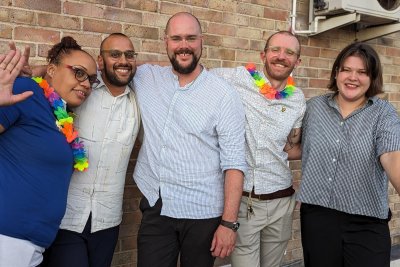
Beyond London: breaking bread and boundaries
Across the UK, there are a number of notable examples of community food projects taking into consideration the unique challenges faced by people based on their gender and sexual orientation, especially where their other identities intersect, including race and immigration status. One such example is the Multi-Denominational Congregation in North West England, hosting a shared meal every Sunday and a food bank throughout the week. The project supports LGBT+ communities, particularly refugee and asylum seekers from African countries, who are especially at risk because of their sexual orientation. The project recognises the double isolation faced by LGBTQ+ asylum seekers, who may lack family and community ties, as well as discrimination, and places a strong focus on social and community-building elements. Many participants describe the congregation as family, underscoring the importance of chosen family – whether one has lost ties due to migration, or orientation, or both. You can read more about MDC in the FareShare and British Red Cross report: Releasing the Social Value of Surplus Food.
Creating our future
We are starting to survey local councils and food partnerships on their work with LGBTQ+ communities, and contributing to the ongoing movement to end LGBTQ+ discrimination. There are countless community projects led by and for LGBTQ+ communities, putting food and growing at the heart of what they do, and many have been running for years.
The diversity of London’s residents makes the capital what it is, and we commend work to make everyone feel not only welcome, but part of the fabric of the city. Not sure what is going on in your borough? This could be your chance to understand how community food projects in the area work to make their spaces feel safe and welcoming to people of diverse backgrounds, and if more support could be provided. Could you follow Waltham Forest’s example and ask local LGBTQ+ communities what a sustainable and inclusive food system looks like to them, be inspired by Lambeth to better communicate what food support and activities are available to and led by LGBTQ+ communities? Or as Barking & Dagenham and Camden have done, reach out to residents across the life course to offer services promoting connection and belonging around food?
If you have inspiring stories about LGBTQ+ safe/inclusive/led spaces and initiatives, we want to hear about them! Please get in touch.
Good Food for All Londoners: In our annual Beyond the Food Bank and Good Food for London league tables and series of good food maps, we shine a light on each council's approach to food partnerships, household food insecurity and the wider food economy.
Sustain
The Green House
244-254 Cambridge Heath Road
London E2 9DA
020 3559 6777
sustain@sustainweb.org
Sustain advocates food and agriculture policies and practices that enhance the health and welfare of people and animals, improve the working and living environment, promote equity and enrich society and culture.
© Sustain 2024
Registered charity (no. 1018643)
Data privacy & cookies
Icons by Icons8
